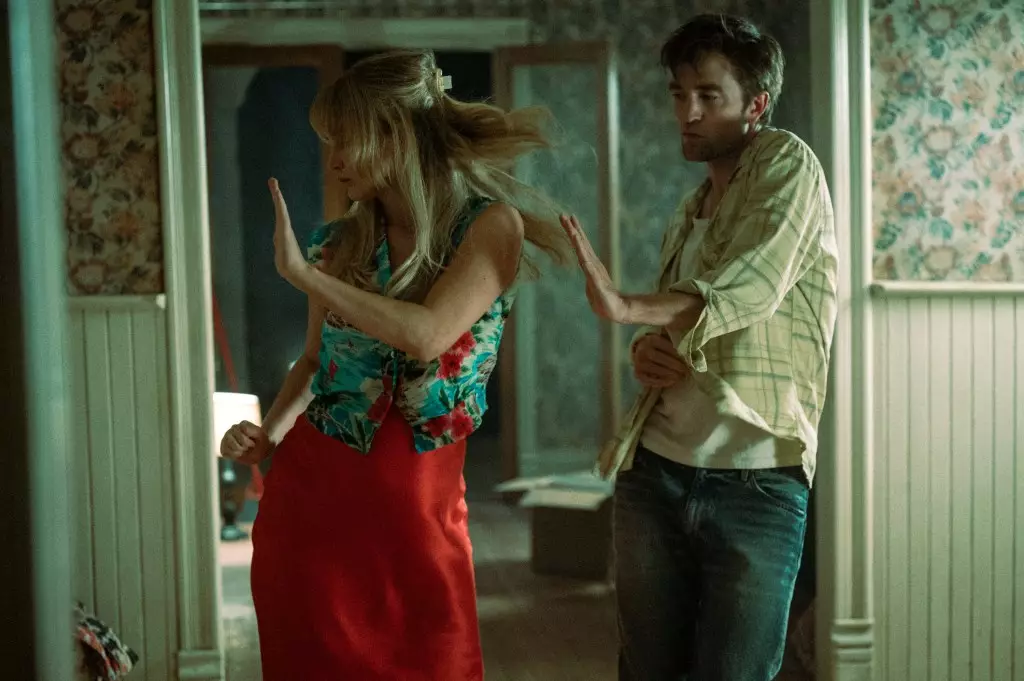Mubi has successfully emerged from a heated multi-distributor competition to secure the domestic and international rights for Jennifer Lawrence’s high-profile film “Die My Love.” The acquisition, reportedly valued at mid-$20 million, signifies not only Mubi’s assertive strategy in the film industry but also a major investment in quality cinema. In an era saturated with streaming giants like Apple and Netflix vying for top-tier content, this bold move underscores Mubi’s ambition to carve out a niche in the competitive landscape of film distribution. Given that they are committing to full theatrical representation on 1,500 screens, it is evident that Mubi is not merely dabbling in distribution for the sake of it; they are poised to make “Die My Love” a cornerstone of their growing arthouse portfolio.
A Potent Cinematic Vision
Directed by Lynne Ramsay, known for her unique storytelling approach and previous accolades, “Die My Love” paints a harrowing portrait of a woman grappling with post-natal depression. This theme, so often stigmatized and sidelined in mainstream discussions, invites audiences to engage deeply with complex emotional narratives. The decision to showcase Lawrence’s descent into mental turmoil offers an impactful commentary on motherhood and societal expectations, elevating the film beyond a mere performance vehicle. Ramsay’s ability to draw out raw emotions aligns with her past works, which often challenge cinematic norms and provoke thought. The mental disintegration of Lawrence’s character is not just central to the narrative; it serves as a lens through which broader societal issues can be examined—a feat often lacking in more commercial films.
Star Power Meets Critical Acclaim
The casting of Lawrence alongside Robert Pattinson and LaKeith Stanfield brings an impressive depth of talent to this production. Critics have already noted that Lawrence’s performance could potentially earn her a fifth Academy Award nomination, reminiscent of her accolades from past standout roles. Damon Wise, in his Deadline review, captures the essence of the film as both “brutal and beautiful,” a dichotomy that resonates profoundly with audiences seeking genuine storytelling. This level of acclaim is vital for Mubi as they continue to build their brand around substantive films that challenge both the viewer’s expectations and the industry standards.
A New Chapter for Lynne Ramsay
Ramsay’s transition from her previous works to “Die My Love” reflects a significant evolution in her career. With a promising trajectory defined by past triumphs, including the acclaimed “You Were Never Really Here,” this film signals a potential turning point that could elevate her status within the cinematic community. Critics have rightfully lauded her for her capacity to craft compelling narratives that linger in the viewer’s mind long after the credits roll. Her collaboration with talented writers such as Enda Walsh and Alice Burch adds layers of complexity to the screenplay, making it an intricate piece that balances art and entertainment.
Mubi’s Rising Influence
Mubi’s acquisition of “Die My Love” is not merely a win; it challenges the traditional film distribution model, demanding attention from both industry professionals and audiences worldwide. With aspirations that extend beyond basic entertainment, Mubi has fortified its role as an influential player within the arthouse film circuit. This year, they have already showcased multiple films in both Competition and Un Certain Regard categories, solidifying their reputation as championing diverse and vital storytelling. Their recent successes suggest a strategic roadmap aimed at becoming a leading destination for high-caliber films, reinforcing the idea that quality can triumph over sheer volume.
In the evolving film industry landscape, Mubi’s latest acquisition marks not just a momentous win but also sets the tone for future endeavors that fuse artistic integrity with commercial viability. As viewers, we should watch closely; the dynamics of film distribution are shifting, and with companies like Mubi at the helm, the future of cinema could very well prioritize profound narratives over mere spectacle.

